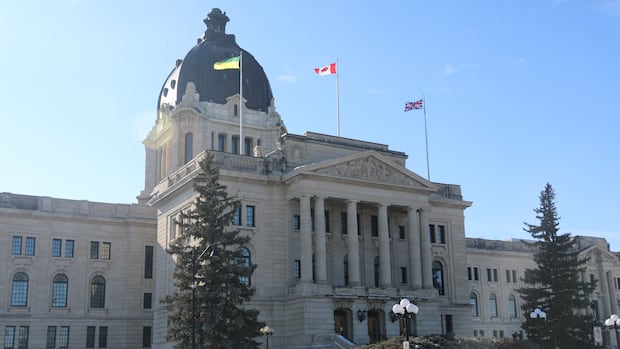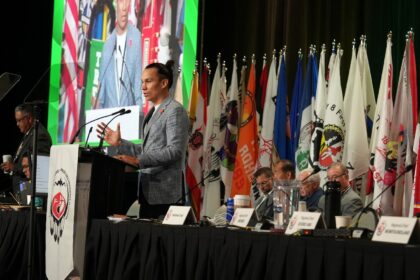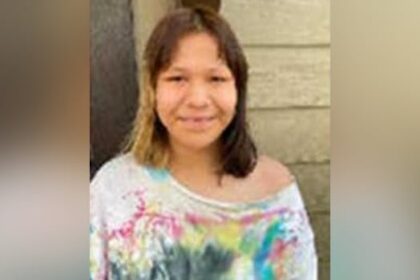SaskatchewanThe public will get a better idea of how the government plans to govern when Lt.-Gov. Bernadette McIntyre rises to deliver the throne speech on Wedensday.After 160 days, MLAs return to deal with many problems they faced when they leftAlexander Quon · CBC News · Posted: Oct 21, 2025 7:00 AM EDT | Last Updated: 2 hours agoPremier Scott Moe will lead the Saskatchewan Party into the second session of the province’s 30th legislature. (Don Somers/CBC)For the first time in 160 days, the Saskatchewan Legislature is set to sit on Wednesday as a new session begins. Despite the lengthy break, many of the issues that were up for debate when the legislature rose in May are likely to remain a focus for Premier Scott Moe and the governing Saskatchewan Party.“What will dominate this session is kind of the things that we’ve been talking about over the last year ever since the Trump administration came into power and sort of upended the Canadian economy,” said Charles Smith, a professor of political science at the University of Saskatchewan.Smith said those issues include the cost of living, tariffs, trade and large interprovincial projects fuelled by Prime Minister Mark Carney’s federal government. The public will likely get a better idea of how the government plans to approach those issues when Lt.-Gov. Bernadette McIntyre gives her first throne speech since being installed in the position. Rural focus and mud-slingingThe governing Saskatchewan Party and its Opposition did not remain quiet during the summer break. The Saskatchewan NDP spent nearly every day hosting multiple news conferences as it tried to maintain the momentum that saw it claim its best election result in more than 20 years, by winning 27 seats in the 61 seat legislature. Murray Mandryk, a former columnist with the Regina Leader-Post, told host Adam Hunter on CBC Radio’s The Morning Edition that the NDP appears focused on expanding its voter base. “[The NDP] figured out a year ago, after the election, that try as [it] might, [it] can’t win government without winning a few seats in rural Saskatchewan,” Mandryk said. Announcements such as the NDP’s plan to build a new hospital in Yorkton are an example of the Opposition’s attempt to build outreach, said Mandryk. But both sides have spent the summer flinging mud at those across the chamber. A recent statement from the government’s executive council went as far as describing the Official Opposition as “the lost and reckless NDP,” while the NDP consistently refers to the Sask. Party as “tired” and “out of touch.”NDP continue to target affordabilitySome of the NDP’s plans have already been telegraphed by the party, including introducing a private member’s bill on rent control. The government has said it believes rent control would only make the housing situation in Saskatchewan worse, and Smith said the public should not have high hopes for the Opposition’s rent control push. “[It] will absolutely likely be defeated by this government,” said Smith. “It’s just something not ideologically aligned with the Saskatchewan Party.” That doesn’t mean the Saskatchewan NDP will be short of targets, Smith added. The cost of living has been a one of the issues Saskatchewan NDP Leader Carla Beck has been focusing on. (Kirk Fraser/CBC News)Health care will likely remain a focus for the Opposition, as will the way the province’s finances have been handled, Smith said. Mandryk agreed. And he said he believes the Opposition needs to put in the work to prepare for this new session. “One hopes, considering we’ve seen a pretty repetitive criticism model from the Opposition, that we’re going to see something new in the session that’s based on good solid research of things that have gone wrong internally in the government,” Mandryk said. WATCH | CBC’s political panel previews Sask. government’s throne speech:CBC’s political panel previews Sask. government’s throne speechThe fall legislative sitting kicks off on Wednesday when the government will deliver its throne speech. We get a preview from our political panel featuring pundit Murray Mandryk and Canadian Press reporter Jeremy Simes.The NDP recently revealed a five-point plan to deal with the ongoing addictions crisis. It calls for:Expansion of voluntary in-patient treatment by increasing funding for harm reduction and in-patient treatment beds.Increasing in-patient treatment detox services with more stabilization units. Expanding and funding sober living homes that provide wraparound services.Building a workforce through incentives for service providers.Ensuring involuntary treatment is reserved for those “whose addictions pose a serious threat to themselves or the public, and only as a last resort.” The NDP splits from the provincial government by confirming it would fund harm reduction services, but agrees with the province that involuntary treatment remains an option. In fact, the plan is so similar to the provincial government’s own policy that the government of Saskatchewan told CBC it’s encouraging to see the NDP ” finally reviewed and support” the province’s five-year action plan for mental health and addictions.On environmental issues, the NDP’s messaging has included a lack of criticism of the government’s policies. In recent months, for example, the NDP have moved in lockstep with the province over pipeline projects and the dropping of the federal government’s carbon tax. Smith said the NDP will continue to push the message that they are the “moderate alternative” to the more conservative Saskatchewan Party. “You can learn as much about the NDP right now as by what they’re saying versus what they’re not saying,” said Smith. ABOUT THE AUTHORAlexander Quon is the provincial affairs reporter for CBC Saskatchewan. He has been a reporter with CBC Saskatchewan since 2021 and is happy to be working in his hometown of Regina after half a decade in Atlantic Canada. He has previously worked with the CBC News investigative unit in Nova Scotia and Global News in Halifax. Alexander specializes in freedom of information requests and data reporting. He can be reached at: alexander.quon@cbc.ca. FacebookTwitterWith files from The Morning Edition
As Sask. legislature returns for a new session this week, what should we expect?











